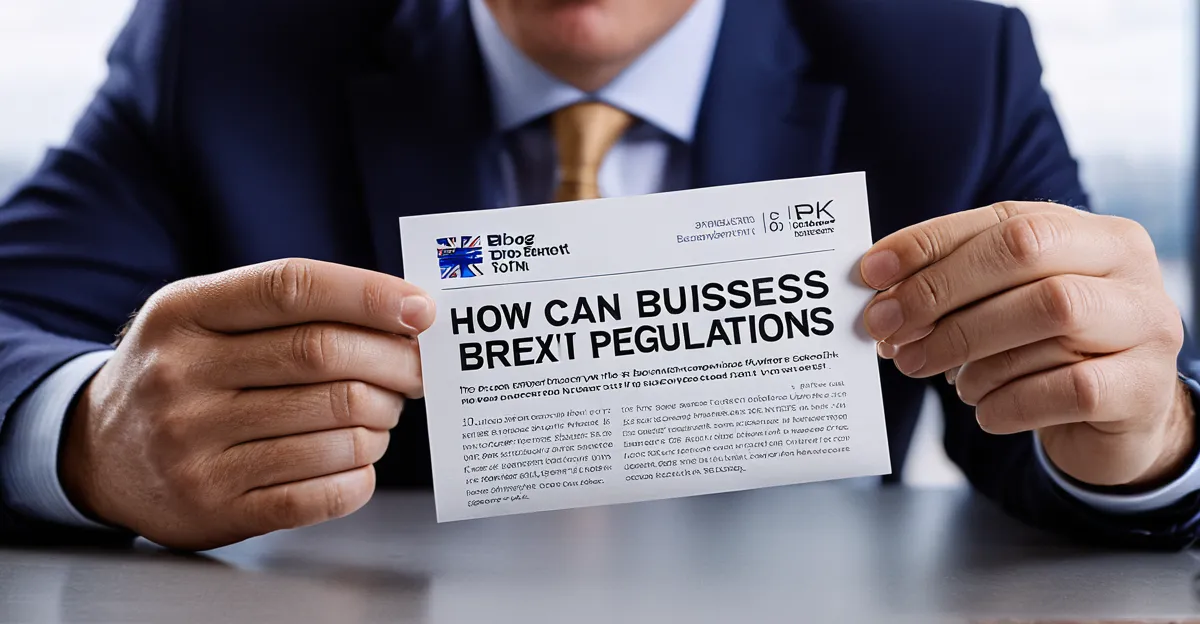Overview of Major Post-Brexit Regulatory Changes Affecting UK Businesses
Post-Brexit, UK businesses face significant Brexit regulations that have reshaped compliance landscape. The trade framework shifted, introducing new customs procedures involving declarations and tariffs distinct from EU rules. Businesses can no longer rely on free movement for goods, affecting supply chains and requiring adaptation to customs checks and border controls.
Employment laws saw changes impacting the hiring of EU nationals. UK business compliance now involves stricter right-to-work checks under immigration reforms, with HR policies needing updates to reflect these new rules. Professional qualifications recognition has altered, necessitating revisions in contracts and workforce management strategies.
Also to read : What Strategies Can Enhance Entrepreneurial Success in the UK Business Landscape?
Data governance diverged post-Brexit as the UK established its own version of GDPR. Companies must align with regulatory changes in UK data protection while managing cross-border data transfers carefully to remain compliant.
These ongoing shifts mean businesses must stay informed through official government sources and regulatory bodies to meet evolving legal obligations promptly. Monitoring guidance from organizations like the UK’s ICO or customs agencies helps ensure compliant operations in this complex, changing environment shaped by Brexit regulations.
Have you seen this : What Strategies Can Small Businesses in the UK Use to Navigate Economic Uncertainty?
Actionable Steps for Achieving Compliance
Post-Brexit, UK businesses face complex Brexit regulations requiring urgent and precise compliance steps. Immediate action involves reviewing existing procedures against new legal demands. A clear Brexit business checklist helps prioritize key areas:
- Update customs documentation to meet separate UK rules.
- Revise contracts to reflect changes in employment and trade law.
- Implement right-to-work checks in line with immigration reforms.
- Align data handling with UK-specific GDPR norms.
Understanding timelines is crucial. Some regulatory changes demand instant action, such as customs declarations, while others, like contract updates, allow phased transitions. Regular internal audits ensure ongoing UK regulatory adjustment aligns policies with evolving rules.
Integrating compliance steps into daily operations boosts efficiency. For example, automating customs entry reduces error risks, while training HR teams on new employment laws ensures workforce compliance. Keeping communication channels open with government bodies supports timely updates on regulatory changes.
By maintaining structured compliance steps and a robust Brexit business checklist, UK businesses can confidently navigate UK regulatory adjustment, minimizing risks and securing smooth post-Brexit operations.
Trade and Customs: Practical Adaptation Strategies
Navigating trade post-Brexit requires UK businesses to adapt to new customs procedures that differ significantly from pre-Brexit norms. Key regulatory changes involve separate customs declarations for goods entering or leaving the UK, with duties applied based on updated import/export regulations. Understanding these shifts is crucial to ensure smooth cross-border operations.
Immediate compliance steps include correctly classifying goods, completing customs documentation precisely, and applying appropriate tariffs. Errors can lead to costly delays and fines. For ongoing UK regulatory adjustment, businesses should invest in training staff on the new systems and consider digital tools that automate customs entries, reducing errors and speeding up clearance.
Supply chain management post-Brexit also demands proactive coordination with suppliers and logistics providers. Delays and increased costs at UK-EU borders can be mitigated by forecasting shipments and building buffer times into delivery schedules.
Government agencies provide updated guidance on customs rules and trade compliance. Keeping abreast of this information ensures UK business compliance remains robust amid evolving Brexit regulations impacting import/export processes.
Employment Law and Workforce Management After Brexit
Key changes impacting hiring and HR policies
Post-Brexit, UK employment regulations have shifted significantly, especially concerning the hiring of EU nationals. One major Brexit regulation requires stricter right-to-work checks for all employees. Businesses must now perform enhanced identity verification aligned with updated immigration compliance rules. Failure to comply risks legal penalties and staffing disruptions.
Adapting workforce policies involves revising contracts and HR guidelines to reflect these regulatory changes. For example, clauses relating to employee mobility, benefits, and dispute resolution may need updating to fit the post-Brexit legal framework. Ensuring these documents align with current standards prevents misunderstandings and legal challenges.
Professional qualifications recognition is another critical area. UK businesses must manage the loss of automatic mutual recognition with the EU, affecting recruitment and workforce planning. This necessitates greater due diligence during hiring and potential investment in training or certification processes to maintain workforce standards.
Proactively updating employment policies and compliance procedures helps UK businesses meet evolving UK employment regulations post-Brexit. Ongoing training for HR teams combined with robust record-keeping strengthens UK business compliance amid continuing Brexit workforce challenges.
Data Protection and Cross-Border Data Transfers
Staying compliant with UK data protection laws post-Brexit
Post-Brexit, the UK introduced its own version of GDPR, often termed UK data protection, which closely mirrors the EU’s framework but requires careful attention to distinct rules. Businesses must ensure UK business compliance by aligning their data-handling practices with updated national rules, notably concerning lawful processing and individual rights.
A crucial area of focus is managing cross-border data transfers. Since the UK is no longer part of the EU, transfers of personal data between the UK and EU now require additional safeguards. Standard Contractual Clauses (SCCs) and adequacy decisions guide these transfers, but companies need to map all international data flows meticulously to avoid breaches.
Adhering to these regulations demands regular audits of data practices and constant monitoring of guidance issued by the Information Commissioner’s Office (ICO). The ICO provides up-to-date advice on how evolving Brexit regulations affect data governance, making it a vital resource for maintaining compliance.
By adopting proactive data protection measures and understanding post-Brexit regulatory changes, UK businesses can navigate complex cross-border data issues while safeguarding privacy and avoiding hefty penalties.
Industry-Specific Regulatory Challenges and Solutions
Understanding sector-specific Brexit advice is critical for UK businesses to meet complex industry regulations UK demands post-Brexit. Different sectors face varied Brexit regulations requiring tailored compliance strategies. For example, manufacturing companies must navigate new customs controls affecting raw material imports, while the finance sector faces evolving regulatory frameworks impacting cross-border services and reporting requirements.
Agriculture confronts strict phytosanitary standards and trade restrictions, necessitating thorough documentation and compliance with both UK and international rules. Meanwhile, retail businesses grapple with changes in supply chains and VAT rules that influence pricing and logistics.
Adapting to these challenges involves proactive monitoring of regulatory changes specific to each sector. Many government departments offer tailored guidance to help industries stay compliant. For instance, the Department for Environment, Food & Rural Affairs (DEFRA) supports agriculture with detailed export protocols, while the Financial Conduct Authority (FCA) addresses finance sector adjustments.
Implementing sector-specific compliance frameworks minimizes risks and operational disruptions. Companies should integrate bespoke checklists aligned with their industry’s regulatory nuances, ensuring their UK business compliance remains robust amid continuing post-Brexit regulatory shifts.
Real-World Examples and Practical Case Studies
Insights from actual UK business adaptation
Examining Brexit business case studies reveals common themes in successful adaptation to regulatory changes. Many UK companies initiated compliance by creating a detailed Brexit business checklist covering customs, employment, and data protection updates. For example, a manufacturing firm enhanced UK business compliance by automating customs declarations, reducing errors and delays at borders.
Another case involved a retail business revising contracts with EU suppliers, aligning terms with new post-Brexit trade and workforce rules. This proactive revision helped avoid costly disputes under altered Brexit regulations.
Lessons learned highlight the importance of early action. Businesses delaying updates to immigration checks or data handling faced operational disruptions and legal penalties. Conversely, companies conducting phased UK regulatory adjustment through staff training and technology integration reported smoother transitions.
Practical checklists derived from these cases emphasize:
- Prioritising high-impact compliance areas.
- Maintaining continuous updates as regulations evolve.
- Documenting all compliance efforts for accountability.
These examples offer valuable guidance, demonstrating that well-planned, sector-aware compliance strategies are essential for enduring post-Brexit challenges and protecting long-term business viability.




